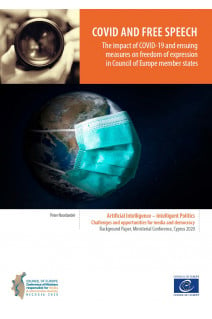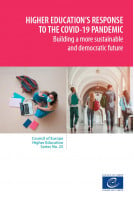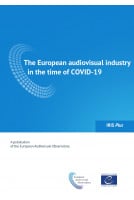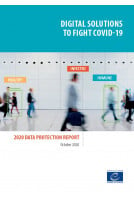Artificial Intelligence – Intelligent Politics - Challenges and opportunities for media and democracy (Background Paper, Ministerial Conference, Cyprus, 2020)
The coronavirus pandemic constitutes an unprecedented and global crisis, which has forced Council of Europe member states to take extraordinary measures on the basis of constantly evolving and sometimes conflicting insights and information. The news media have played an important role in providing information about COVID-19 and associated measures, and news consumption has increased drastically. At the same time, the crisis has amplified important preexisting challenges to free expression. The steady deterioration
of freedom of expression across Europe in the recent years has weakened member states’ resilience in the face of the crisis and must be addressed.
The success of efforts to contain the spread of the virus is largely dependent on access to accurate, reliable, diverse and timely information by all – public authorities, media, medical and other technical staff and, equally important, the population. A free and pluralistic public debate is crucial for the public’s understanding of the situation and for their ability to make informed decisions, limit rumours, recognise disinformation and foster solidarity and trust in measures taken to address the crisis.
INTRODUCTION AND METHODOLOGY IMPACT ON LEGAL AND REGULATORY FRAMEWORKS
Access to information
Restrictions on “fake news”, “misinformation” or “causing panic”
The use of civil lawsuits
IMPACT ON THE SAFETY OF JOURNALISTS AND OTHERS WHO SPEAK UP
Rise in violence
Negative rhetoric
Criminal prosecutions and the use of COVID-19 as pretext
Whistleblowers and confidentiality of sources
IMPACT ON THE MEDIA ENVIRONMENT IMPACT ON THE PROMOTION OF QUALITY JOURNALISM AND MEDIA LITERACY SUMMARY OF CONCERNS AND CONCLUSIONS







